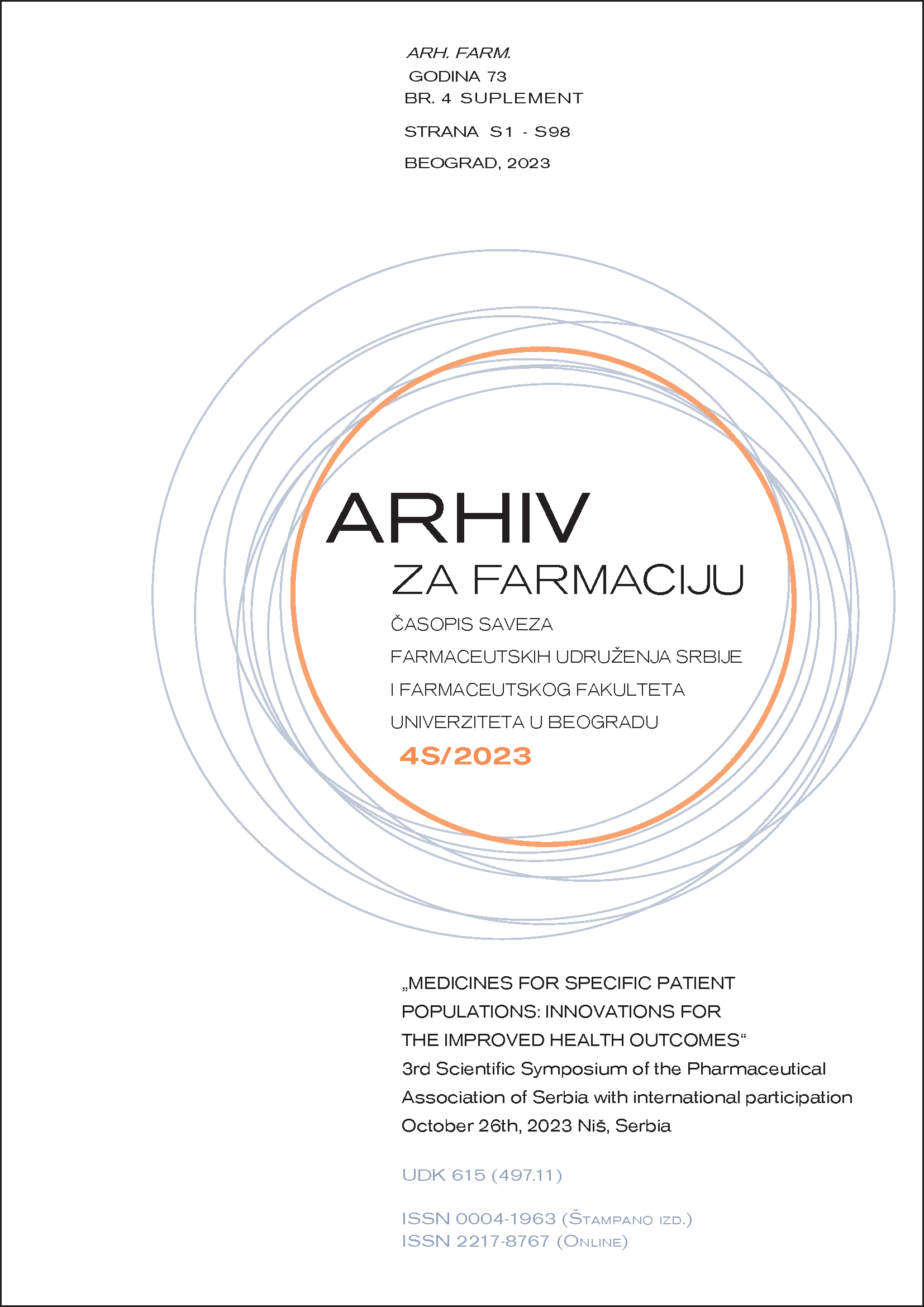AGE MATTERS: CUSTOMIZING DOSAGE FORMS FOR PEDIATRIC AND GERIATRIC PATIENTS
Abstract
Pharmaceutical dosage forms tailored to the specific needs of children and the elderly are crucial in ensuring therapeutic efficacy for patients from these population groups. Children present a unique challenge due to their physiological characteristics such as differences in metabolism, enzymatic activity, and taste preferences, necessitating the development of innovative dosage forms (1). Some of these are chewable and dispersible tablets, sprinkle formulations, mini-tablets, and orally dispersible forms. Liquid pharmaceutical forms are also developed, with focus on various taste masking techniques. Challenges encountered in the geriatric patient population include polypharmacy, cognitive issues, and dysphagia, necessitating the development of combined products and pharmaceutical forms that are easy to administer (including swallowing) with appropriate packaging that can further facilitate dosing and provide clear information (2). In the case of both patient populations, the focus is on the development of safe and effective formulations that are tailored to the needs of the patients and the characteristics of the pathological condition being treated (3). In this regard, there is significant research interest in the development of preparations for topical and transdermal application, modified-release formulations, buccal, and sublingual forms. Modern trends also include the application of various 3D printing techniques and diverse intelligent drug delivery systems and/or digital therapeutics. It is evident that adapting pharmaceutical dosage forms can have a significant impact on improving therapeutic outcomes in vulnerable populations. Presented strategies in adapting dosage forms aim to enable better adherence to the therapeutic regime, reduce adverse effects and interactions between drugs, and ultimately, improve the quality of life of children and the elderly.
References
1. Khan D, Kirby D, Bryson S, Shah M, Mohammed AR. Paediatric specific dosage forms: Patient and formulation considerations. Int J Pharm 2022; 616: 121501.
2. Messina R, Becker R, van Riet-Nales D, Stegemann S. Results from a preliminary review of scientific evidence for appropriateness of preparations, dosage forms and other product design elements for older adult patients. Int J Pharm 2015; 478(2): 822-828.
3. Menditto E, Orlando V, De Rosa G, Minghetti P, Musazzi UM, Cahir C, Kurczewska-Michalak M, Kardas P, Costa E, Sousa Lobo JM, Almeida IF. Patient centric pharmaceutical drug product design—The impact on medication adherence. Pharmaceutics 2020; 12(1): 44.

